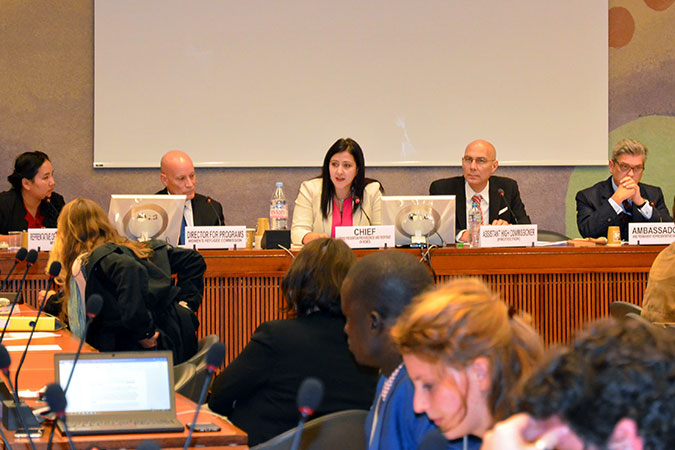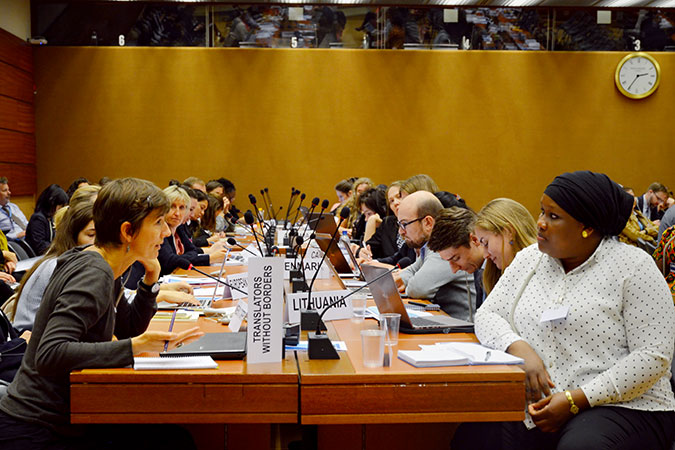Humanitarian actors, Member States and the UN place gender equality at the centre of effective refugee response
Date:

“Women are not one category, we must acknowledge them in all their diversities, including age, sexuality, religion,” says Cheery Zahau, Representative of Persons of Concern Myanmar. “Women are silenced by lack of representation. We are often excluded, and our voices aren’t heard, but we have so much to contribute. We can contribute solutions.”
The side event held as part of the Global Compact on Refugees thematic discussions, on 17 October, in Geneva, Switzerland, focused on: “The centrality of gender equality and the empowerment of women and girls for the formulation of the global compact on refugees.”
The panel, co-organized by UN Women and UNHCR, was moderated by the Assistant High Commissioner for Protection at UNHCR, Volker Türk, and included Italy's Permanent Representative, Ambassador Maurizio Enrico Serra; the Representative of Persons of Concern, Myanmar, Cheery Zahau; the Director of UNFPA Geneva Office, Monica Ferro; Senior Director for Programmes at the Women’s Refugee Commission, Dale Buscher; and Chief of Crisis Preparedness, Prevention and Response at UN Women, Hiba Qasas.
Recognizing that the average length of displacement is now more than 17 years, and traditional response strategies have been inadequate in taking into account the differential experiences and needs of men and women, Ms. Hiba Qasas emphasized that the provision of all services to displaced populations must look beyond immediate assistance and offer viable long-term solutions that protect women’s rights and empowerment.
Talking from her own personal experience, Ms. Zahau highlighted the importance of changing the perception of women and girls as being merely victims: “Despite the many layers of discrimination that we face, refugee women and girls aren’t just passive victims. Women and girls care for lost orphans and children, provide safe spaces for women who have experienced sexual and gender-based violence, ensure that their families are fed, run small businesses, and provide protection.”

Noting the skills and capacities that women and girls bring, while simultaneously acknowledging the heightened risks they face during humanitarian crises, Mr. Buscher from Women’s Refugee Commission explained how labeling women as a vulnerable, homogenous group can lead to their further marginalization.
Ambassador Serra of Italy added: “No amount of meetings and compacts will be sufficient if we don’t translate it into the reality of women and men, individually and collectively.”
“The SDGs (Sustainable Development Goals) make it clear that no one can be left behind, but women and girls are being left behind,” stressed Ms. Ferro from UNFPA.
“UN Women is calling for a Global Compact on Refugees that not only provides the services, protection and resources required to address the rights and gender-specific needs of all refugees, but also acknowledges and promotes the women and girls’ leadership, equal participation and agency for a more effective refugee response and durable solutions,” urged Ms. Qasas.
Volker Türk closed the Panel by expressing his hope that the Global Compact would be a transformative agenda, backed by resources and concrete actions that refugees can rely on.
Related documents: